"I'm more of an ass man," declares TORRES on Three Futures highlight "Righteous Woman," flipping the role women have historically been pressured to embody in art and society at large. Here, the Brooklyn-based musician (real name: Mackenzie Scott) isn't the object of desire, but the one desiring--an ownership of sexuality that runs throughout the album's 10 tracks, which celebrate the complexities of human nature.
The immersive effort, produced with longtime collaborator Rob Ellis (PJ Harvey), dives into the chaos and catharsis of sex. On "Helen in the Woods," TORRES outlines a high school-aged female whose stalker obsession becomes dangerous ("You come home from school/ To find her naked in your bed/ Everybody always said/ Helen's funny in the head.") On "To Be Given a Body," she's self-assured and sensual, reflecting on the physical power of lust ("To be given a body/ Is the greatest gift.")
As a master storyteller, TORRES' LP rolls out like chapters of a memoir, her voice and instrumentation offering completely different experiences, fantasies or memories with each track. Some lean heavily on jagged guitar riffs and dense, fuzzy drum machines, while others revel in empty space, mechanic synths and sputtering bass that recall Bjork's Homogenic--an album that successfully bridged the natural with the electronic, much like Three Futures.
Below, we caught up with TORRES, who performs tonight at Brooklyn's Music Hall of Williamsburg, to talk about the gender-fluidity, musical theater and sexy self-restraint behind Three Futures.
OUT: In "Righteous Woman," you embody the attitude of an "ass man." How does this track, and the album as a whole, explore gender?
TORRES: I think any sort of gender fluidity that you hear on the album is a direct imprint of some facet of my subconscious or my personality. So truthfully, I feel like that is a part of me--that character I play in "Righteous Woman." It's not so much an exploration as it just is. I suppose it's just as much a part of me as any other character on any of the other songs.
It's interesting that you say "character." Do you feel you're embodying characters on Three Futures?
I guess I meant more part of my character, not necessarily like an actor. Every day I feel like I'm going to amplify a different part of my personality depending on the season, the weather, what I had for dinner the night before. It could be super arbitrary, but we wake up every day and decide what color scheme we're working with in our clothes and decide what kind of day it's going to be. I think that plays into it. I've always embodied gender fluidity since I was a kid, and it's just who I am. I've never really played it up so inexplicably in a song before.

What inspired the lyrics in "Righteous Woman"?
I wanted to write something about being unapologetically lustful, rather than being the object of desire--being the one who desires, and having desire itself be the focal point of the song. There's also this element of self-restraint that I'm really fascinated by--the relationship between being in control and having desires, and subsequently getting or not getting what you want. Because a lot of the time getting what you want too quickly or self-indulgence can be a form of weakness, and I think there's a really fucked up sexiness to being patient and waiting. There's sexiness in watching versus being the one who's hands on.
How does the album artwork visually capture the themes on Three Futures?
I really wanted to reflect that sexiness of being in a position of power--sexiness in not being the one objectified, but the one objectifying. I also wanted to play into the themes of the last album covers because I like seeing that thread. I'm looking into the camera as I am on the last two album covers, but this time it's less bewildered. I hope it translates as more self-assured, which is what I want it to be.
Related | TORRES Explores Lesbian Power Dynamics in 'Skim'
How did you want to treat sexuality in the "Skim" music video?
My director, Ashley Connor, and I brainstormed this idea for shooting a music video in this house, where we move throughout each of the rooms and have it be really sexy. I just wanted to make a really sexy music video where it's not a tame, suggested sexuality. I'm tired of sexuality being nuanced. I don't think it's interesting anymore to suggest sexiness, at least in what I'm doing currently. I wanted to bring sexiness to the forefront, so we could get to the nuance and not have the sexual aspect be the nuance. I think doing so is the only way to eradicate this notion that sexiness is confrontational. It's about owning your desire and occupying that space, rather than being an object of desire.
Throughout the album, you almost exclusively use "you," speaking directly to the listener. Was this intentional?
Everything is intentional. I guess I did experiment more with perspectives on this one. I do think the listener should always feel like they are the ones at the center of what's happening. Perhaps I wanted to make Three Futures a little more accessible. I always want to leave room for people to insert themselves into songs.
Three Futures, from start to finish, really feels immersive.
It should be immersive. I wanted it to be a world of its own. People have that idea of escapism when they're watching a movie or listening to music, but in a way I think this is the opposite. I wanted to bring that world to where each person is at any given point. I wanted this album to be a world that envelops whatever world they're in, rather than people escaping the world they're in.
Your voice is used in so many different ways, from the manic warbles of "Helen in the Woods" to the soothing tones of "Three Futures." Have you had formal training?
I did a lot of musical theater when I was younger, and whatever training you're hearing is not real training. It's just that--kind of residual musical theater, which is funny. I love musical theater and I'm really into character work vocally, but I think I like to treat the singing voice like any other instrument. You should be able to bend it to your will and shape it to each song the way it needs to be shaped. I want to bend it like I can a guitar, like you run a guitar through a bunch of pedals that make it sound modular or like a synthesizer or super washy. But I'll manage to have my voice be singular, so there's that thread running throughout.

Photography: Ashley Connor
Your musical theater background is definitely an undercurrent on Three Futures.
I think what I do is just an extension of what I was doing then--musical theater. It's not that different. I guess the only difference is the script I'm singing is one I wrote, not one that someone else wrote. Everything is acting. You're playing an amplified version of yourself and, in my case, I'm trying to have as much fun with it as possible. I don't know how much my musical theater background comes across in my music, but I internalize that for sure.
You close the album with "To Be Given a Body," which is a very therapeutic ending. The line, "to be given a body is the greatest gift," really stands out.
That one line kept coming to me in really random times, and I would sing it quietly. I sort of tiptoed around writing that one more than writing any of the other songs. I'm not exactly sure why. It was almost like it was too simple--that line. But it turns out that was everything I wanted to say. It ties off the balloons. Ultimately, despite all the pain that comes from having a human form, it is all we know. Since there's no guarantee for me, we hope for more. We think there is more out there beyond this really painful human form. We don't know it's there. We're not guaranteed it, and I think that for most of my life, I've been so future-oriented that it kept me from being in the present. I've learned how to live in the present because the future doesn't exist. The past doesn't exist.
Stream TORRES' Three Futures, below.
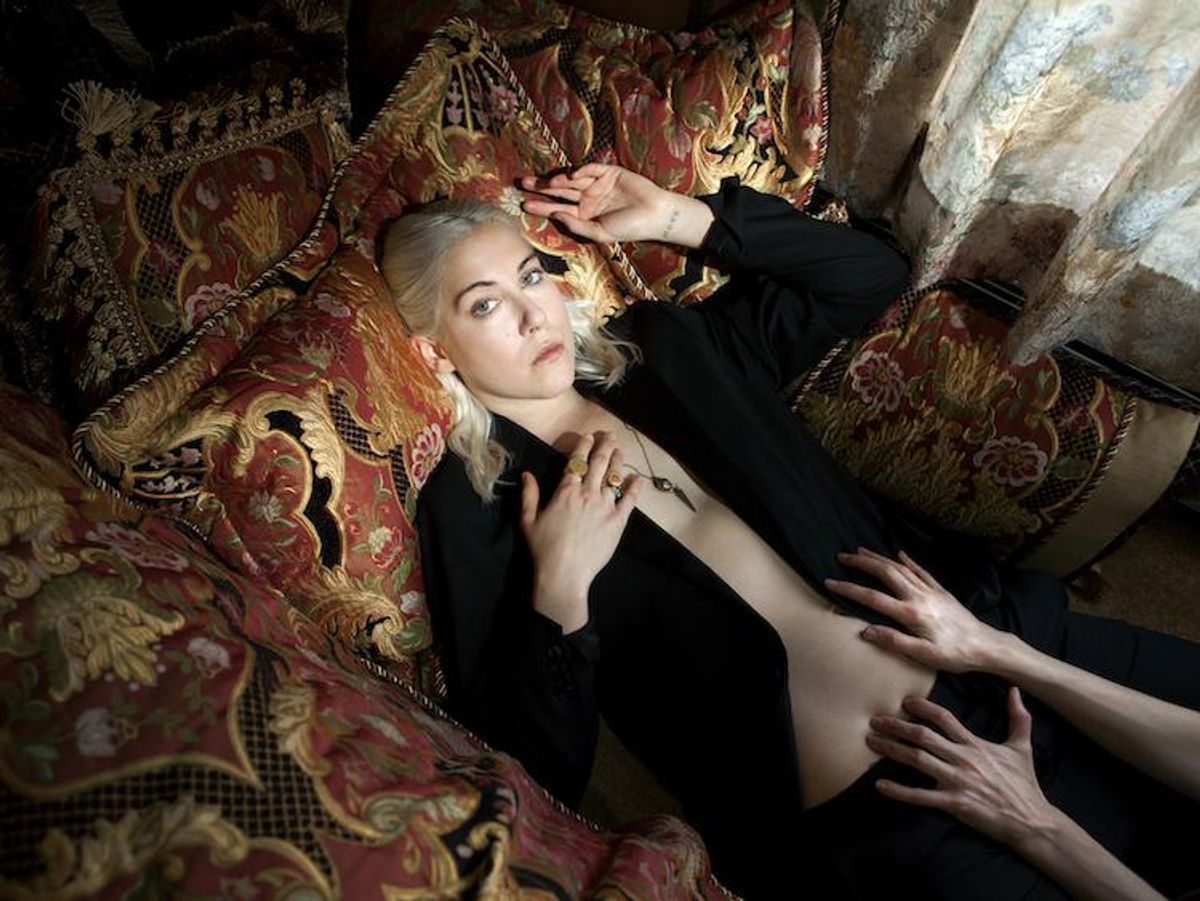



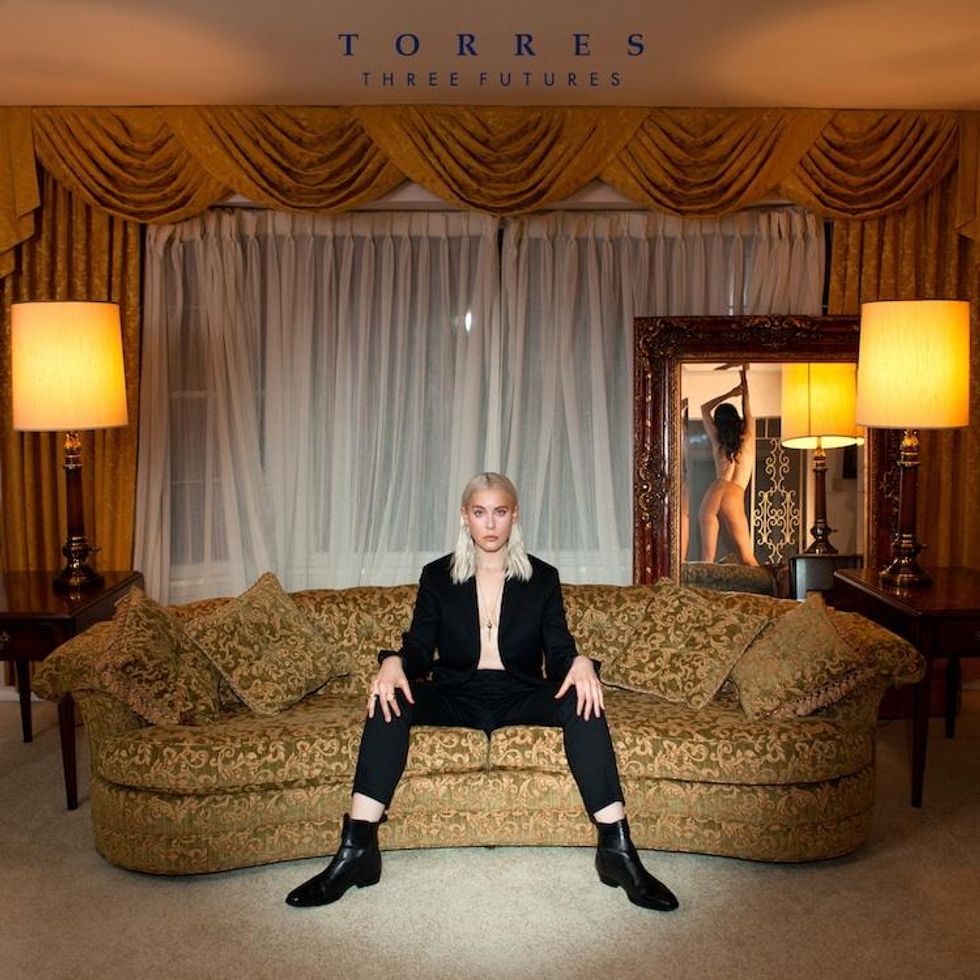
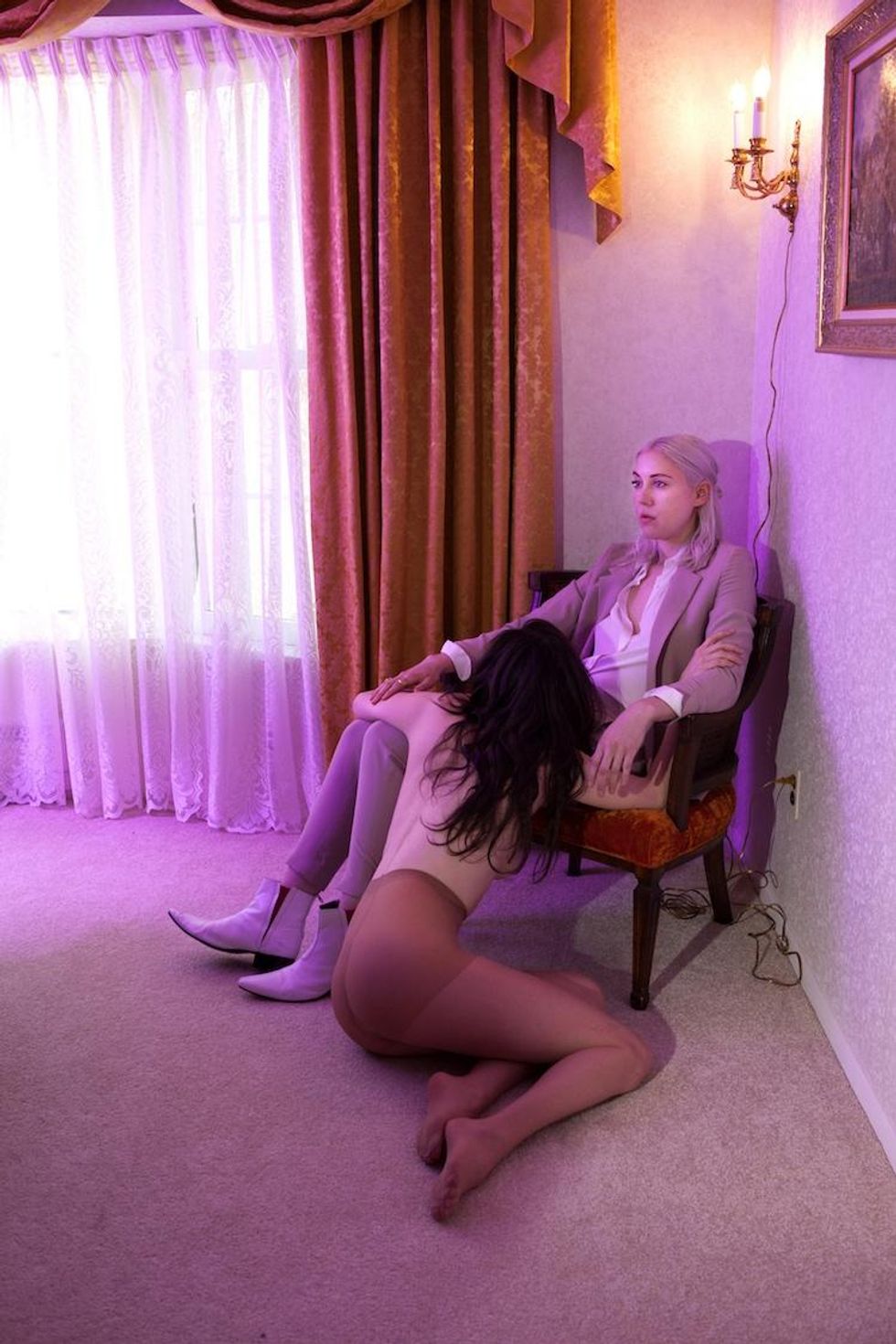






























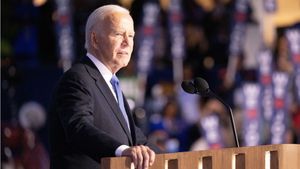




































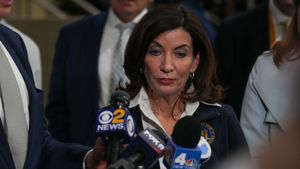









Sexy MAGA: Viral post saying Republicans 'have two daddies now' gets a rise from the right